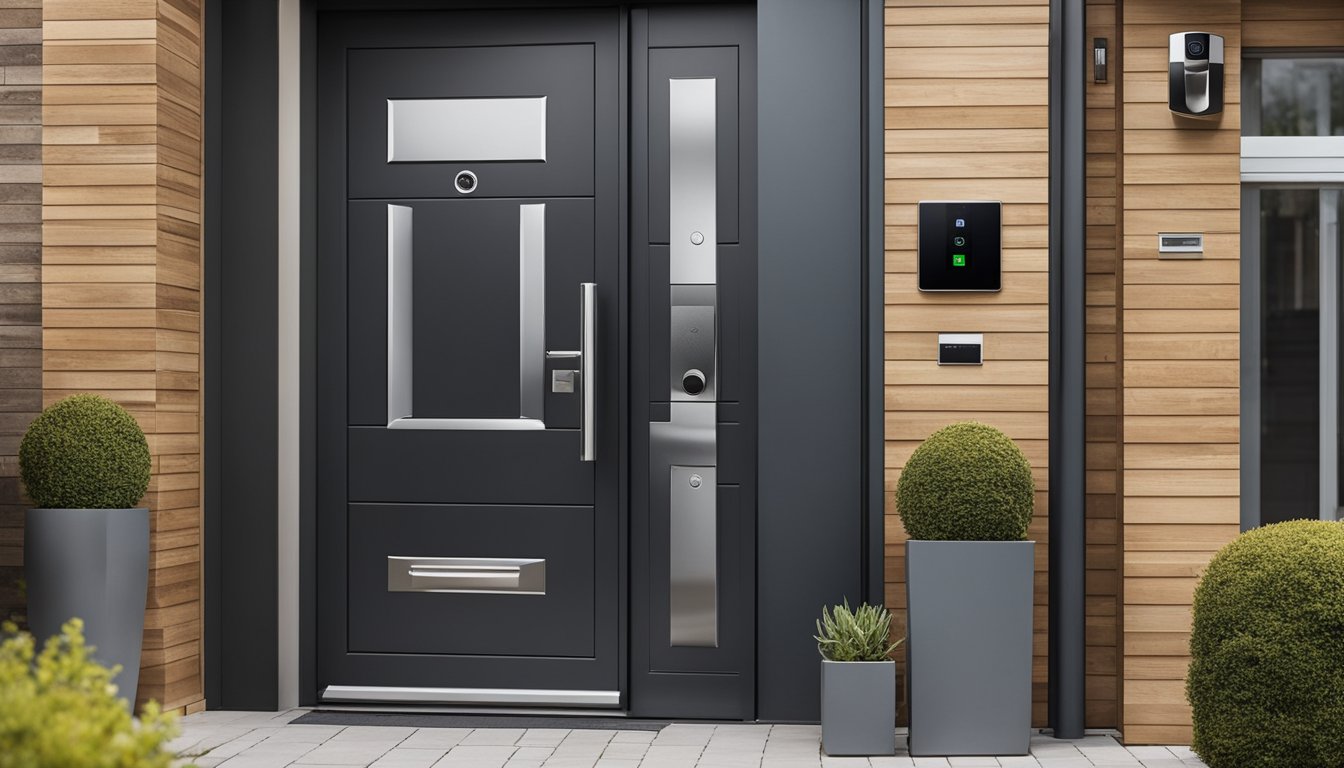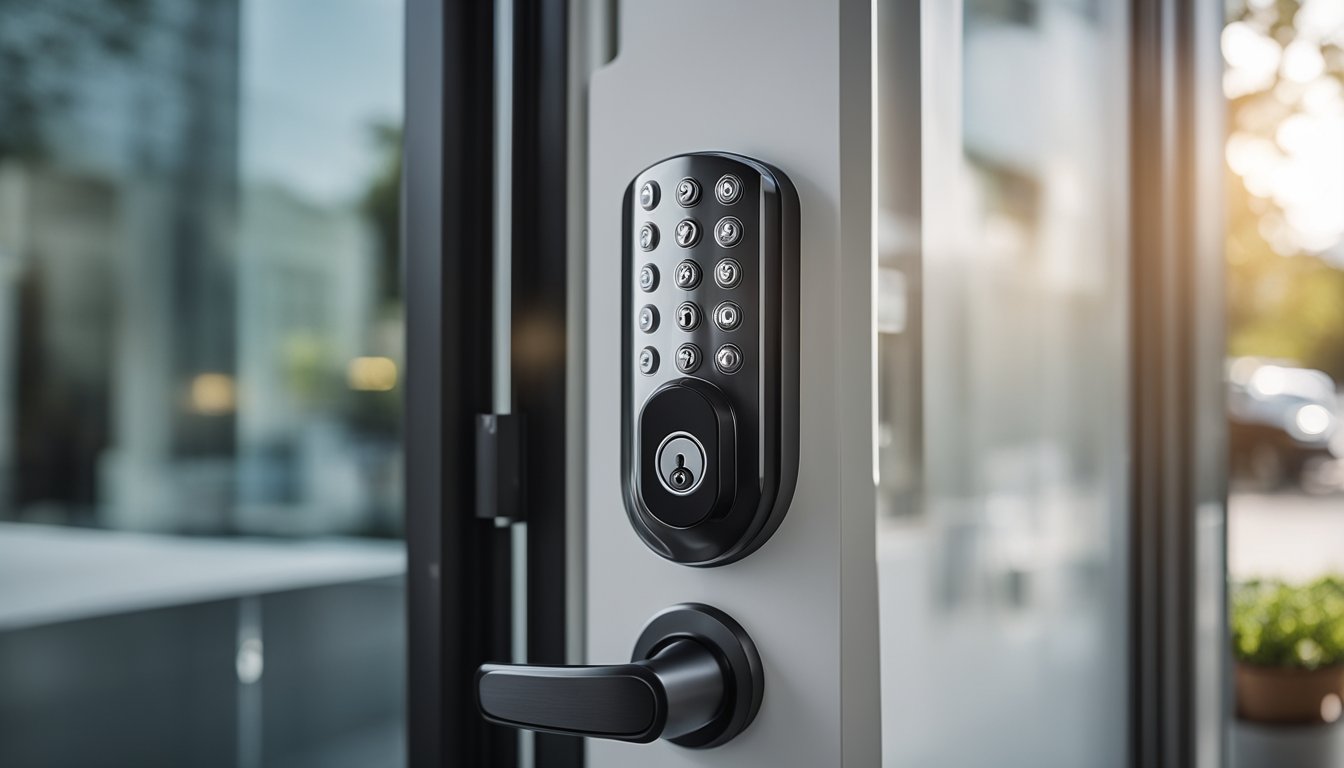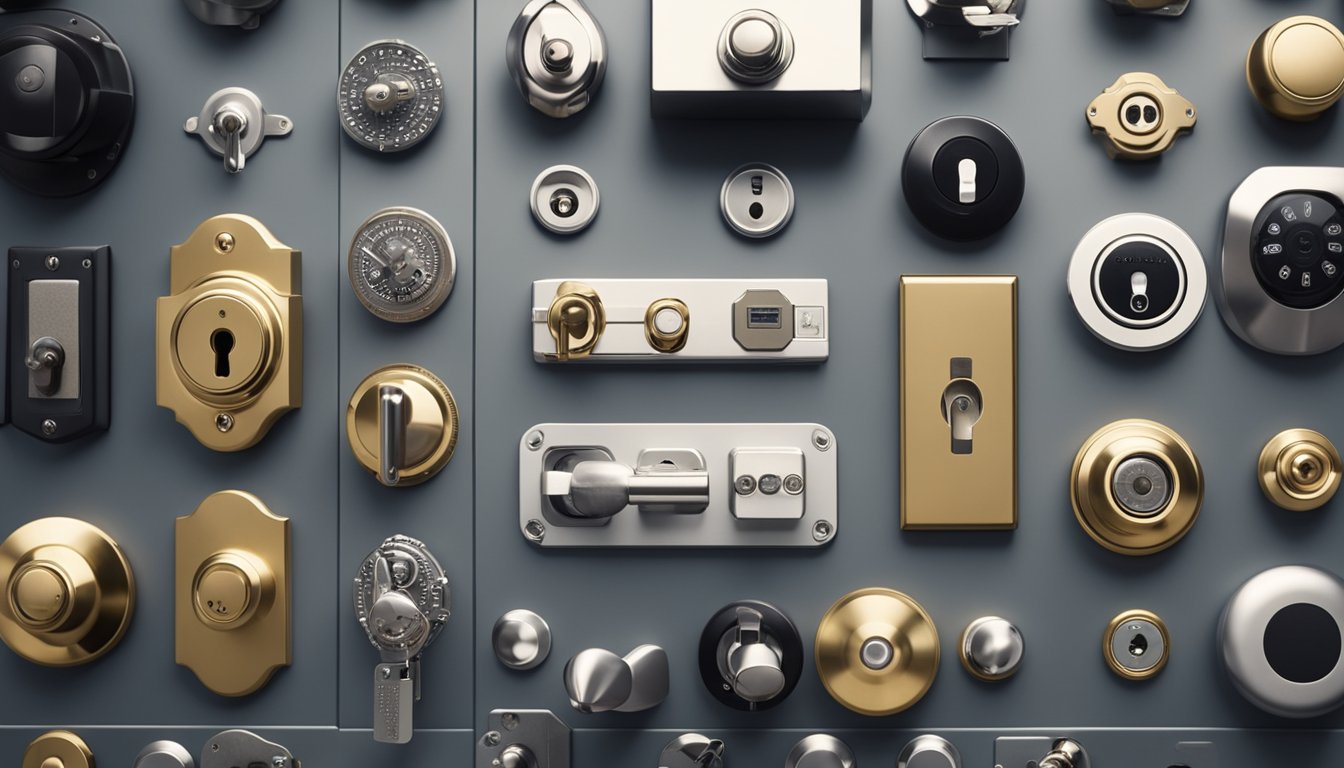Late updated: 30 Oct 2024 12:10
Written by: Elena Prescott
Essential Door Lock Trends For UK Homes In 2024: Innovations and Insights
As homes continue to evolve, the significance of securing them with the latest door lock technology becomes paramount. In 2024, the UK is seeing a surge in smart lock innovations, promising not only enhanced security but also more convenience. Our homes deserve nothing less than the best protection with technologies that blend seamlessly into our lifestyles.

The integration of smart features in door locks is becoming more prevalent, allowing homeowners to manage their home security remotely and efficiently. From fingerprint recognition to app-controlled locks, these innovations ensure that access is both secure and uncomplicated. Bold advancements in door design are pairing function with style, matching the aesthetic demands of modern homes.
Smart locks aren't just about security; they are a testament to how technology is reshaping our living spaces. With options to suit all preferences, UK homeowners can choose from a range of stylish, robust, and innovative solutions that align with their personal tastes and security needs.
Key Takeaways
- Smart locks offer enhanced security and convenience
- Fingerprint and app controls are leading innovations
- Designs combine function with modern aesthetics
Emerging Innovations in Door Lock Technology

In 2024, we see a fusion of smart technology with eco-friendly practices in the realm of door locks. These advancements cater to security needs while also being conscious of the environment and energy efficiency.
Smart Lock Advancements
Smart locks are now at the forefront of home security, offering a range of cutting-edge features. Keyless and touchless access are becoming more prevalent, allowing users to manage entry through fingerprint scanning, mobile apps, and WiFi connectivity. This transformation means greater convenience and security, eliminating the need for traditional keys.
In addition to security, remote access and management capabilities have advanced. Users can now control locks from anywhere via their smartphones, making it easier to monitor and adjust access permissions in real-time. This level of control enhances our ability to secure homes, aligning with modern life demands.
Sustainable Materials and Energy Efficiency
As the focus on sustainability grows, door lock technology is incorporating eco-friendly materials and designs. Manufacturers are increasingly using recycled materials in smart locks, contributing to reduced waste. Moreover, energy-efficient features are being integrated, such as low-power consumption modes and rechargeable batteries.
This shift not only benefits the environment but also reduces the overall cost for homeowners by minimising energy usage. In addition, some models offer solar charging options, harnessing renewable energy sources. These innovations signify a step forward in aligning security technology with environmental responsibility, providing solutions that are both secure and sustainable.
Design Trends and Consumer Preferences
In 2024, UK homeowners are prioritising both aesthetic appeal and functional utility when selecting door locks. There’s a marked shift towards designs that seamlessly blend durability with style, often making use of various materials and finishes to achieve a harmonious look.
Aesthetic and Functional Enhancements
We're seeing an increased demand for door hardware that accentuates the overall appearance of homes. Homeowners prefer satin chrome and other minimalist finishes that enhance curb appeal without overwhelming the space. French and double doors, common features, are often highlighted with contrasting knobs or handles that offer a sleek contrast to more traditional settings.
Composite and wooden doors are favoured for their versatility in modern design. Attention is given to how these materials complement minimalist door hardware, creating a seamless yet striking visual impact. Beyond aesthetics, functionality is key. Door locks are expected to integrate with existing smart home systems, satisfying the need for advanced security while maintaining a stylish facade.
Focus on Durability and Performance
When it comes to durability, homeowners are increasingly focused on performance. Durable materials are vital in ensuring that door locks withstand daily use and adverse weather conditions, particularly for external doors. Composite materials and high-grade metals are popular for their strength and longevity.
Hinges and locks must offer reliability without compromising on design integrity. The durability extends to the handles, ensuring they maintain their finish despite frequent use. Additionally, the integration of advanced locking mechanisms is crucial. We recognise that security and performance are as crucial as design, ensuring peace of mind for homeowners while maintaining visual appeal.
Frequently Asked Questions

In 2024, the UK home door hardware scene is marked by a mix of innovation and classic design. Smart locks are gaining popularity, while timeless styles remain in demand.
What are the prevailing styles for door handles in UK homes this year?
This year, UK homes are embracing minimalist and sleek designs for door handles. Matte black and brushed nickel finishes are particularly favoured. These finishes provide a modern and understated look that complements various interior styles seamlessly, from contemporary to industrial.
Which smart door locks are currently considered industry-leading in the UK market?
The Yale Conexis L1 and similar smart locks are leading the market in 2024. They offer features like app control, physical keys, and compatibility with major smart home systems. Users appreciate their balance of security and convenience, alongside a blend with existing home tech systems like Amazon Alexa.
What door hardware designs are considered timeless and consistently popular?
Traditional brass and classic chrome remain stalwarts in door hardware design due to their versatility and enduring appeal. They complement both modern and historical UK homes and are valued for their ability to fit seamlessly regardless of changing trends.
Are there any emerging trends in interior door design for UK residences in 2024?
Emerging trends include doors with integrated smart technology, such as biometric entry systems, which are becoming more widespread. Additionally, environmentally friendly materials continue to gain traction, aligning with broader green movements influencing home design.
Is there a preference for door knobs or levers in contemporary UK home decor?
Currently, door levers are preferred in contemporary UK homes due to their accessibility and modern aesthetic. They are easier to operate for people of all ages and abilities, aligning with the growing emphasis on universal design principles.
What materials and finishes for door hardware are currently in vogue in the UK?
Brushed nickel, matte black, and antique brass are popular finishes in 2024. Each offers a unique aesthetic value while matching a wide array of interior styles. Wooden knobs, often in oak or walnut, are also gaining popularity among those seeking a natural or rustic appearance.
